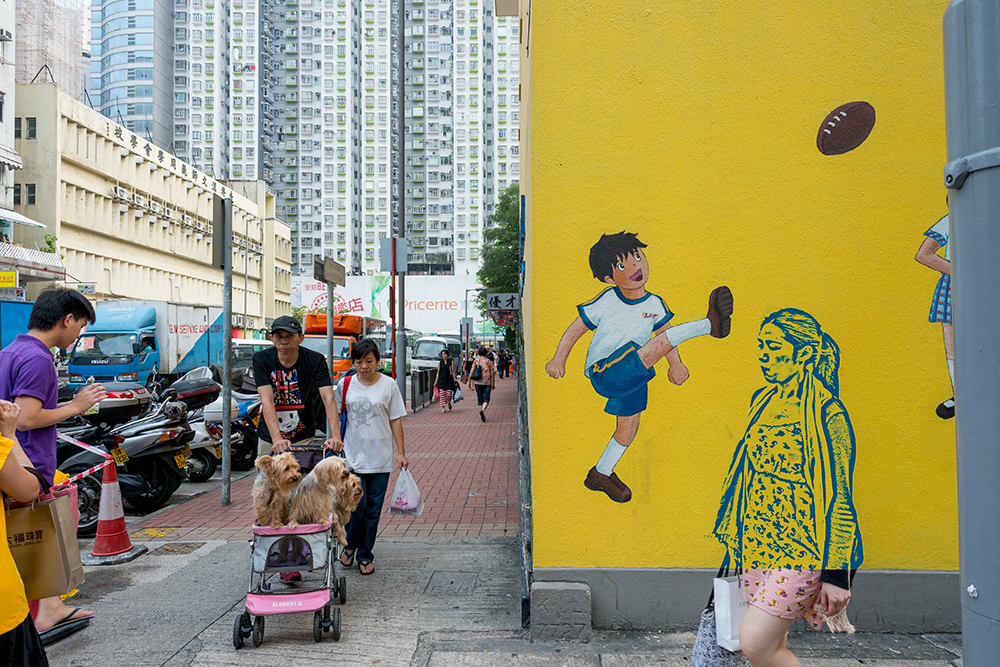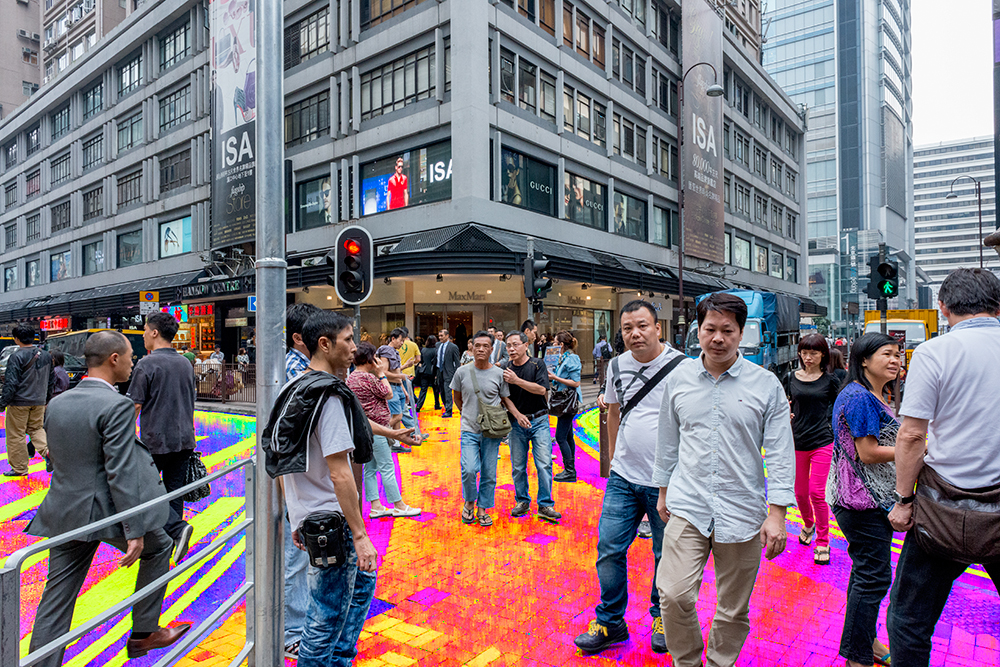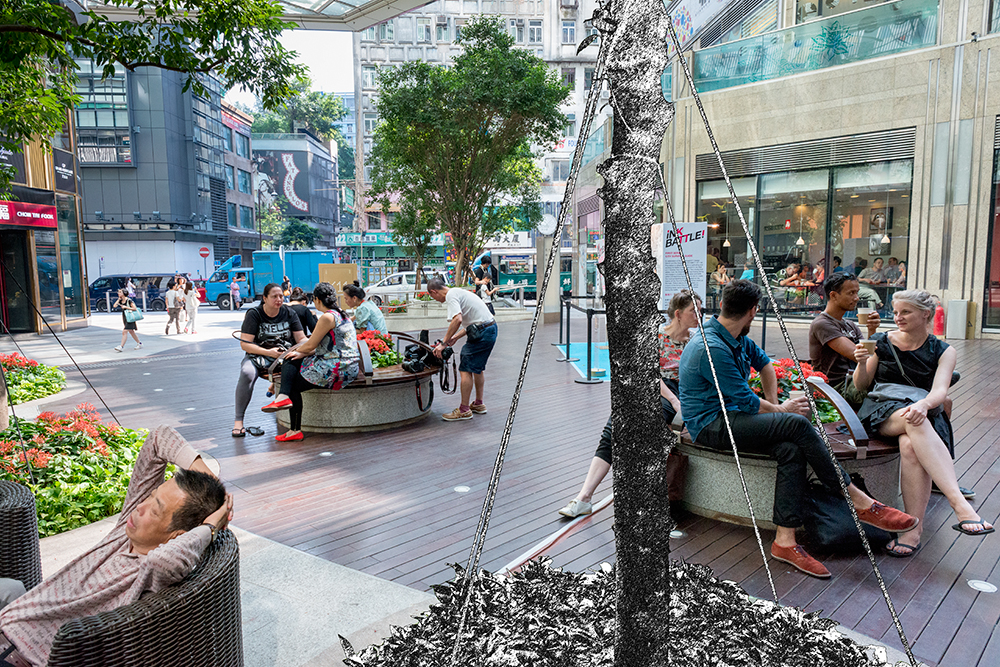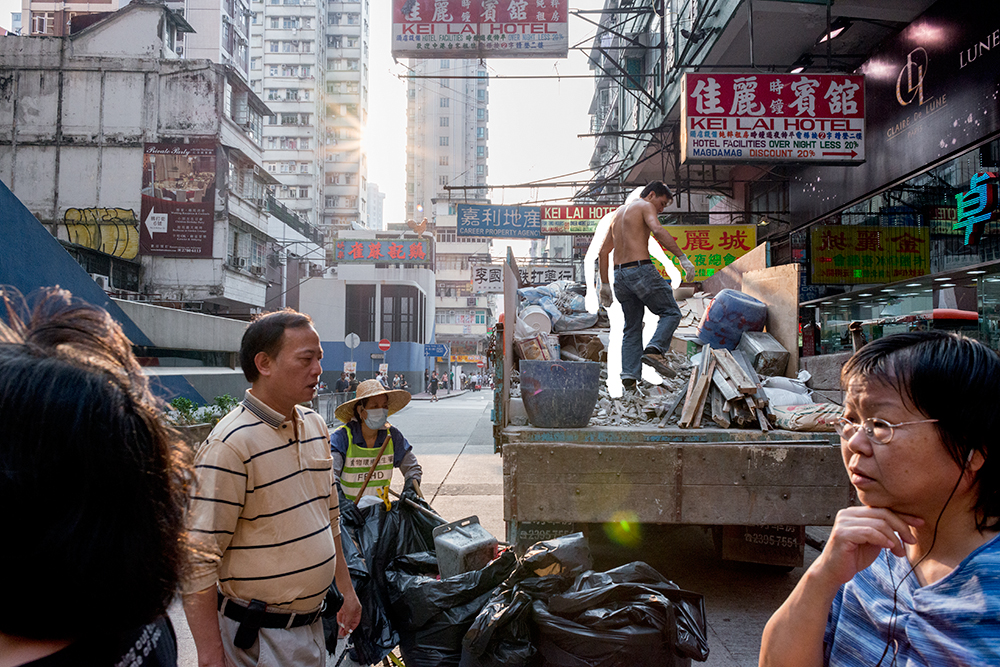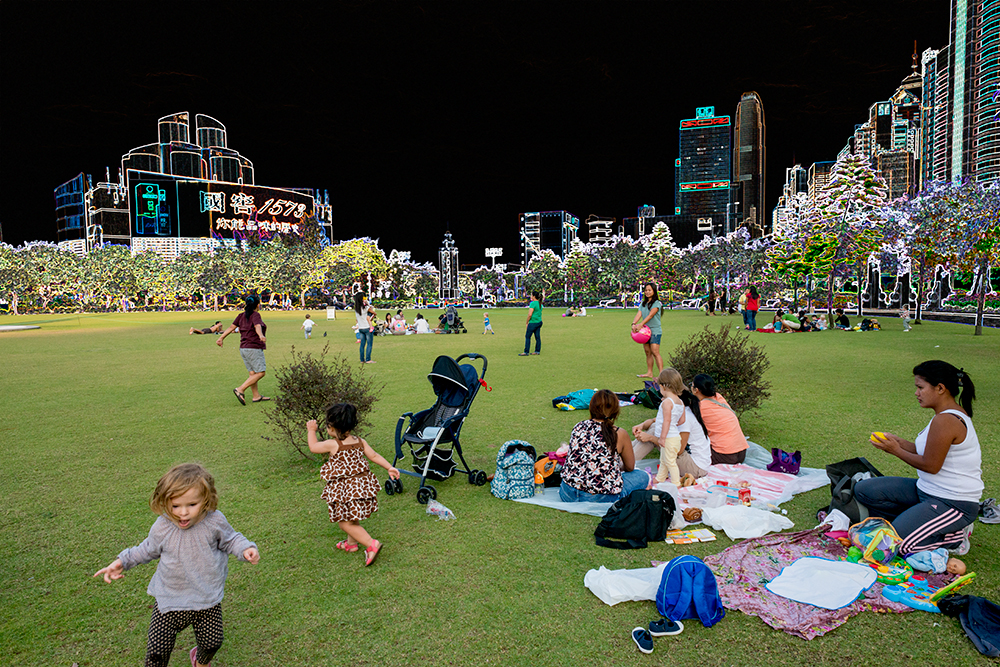Ed-It-Yourself
In this era when megapixel cameras are integrated with mobile devices, all of us are technically capable of producing images from everyday life. These images are known as ‘snapshots’, usually implying a lack of artistic intent. Under this circumstance, ‘snapshot’ has become a derogatory term to describe photographs. In ‘Ed-It-Yourself’, digital manipulation is applied to each photograph to differentiate it from ordinary snapshots. Figures often become separated from their original context. By doing so, the illusion of depth within each frame begins to crack, allowing the two-dimensional nature of photographs to reappear. Strictly speaking, photo manipulation does not just happen digitally. Picture making, the act of transforming reality into a photograph, is already an inevitable process of manipulation. Framing, juxtaposition, exposure, the decisive moment, etc., all become parts of what I call ‘mental manipulations.’ These manipulations empower any photograph to turn into its own subjective reality. If this is true, even the most ordinary snapshot should have a certain degree of artistic intent, which unfortunately has been overlooked. Digital manipulation, therefore, serves as my way to visualize the underlying ‘mental manipulation’ within each photograph. ‘Mental manipulation’, whether made consciously or not, is inherent in the act of photographing. However, does it elevate any photograph to the level of art? If a photograph only represents partial reality, to what extent should we treat it as fiction? By raising all these questions in ‘Ed-It-Yourself’, I want to provide viewers an alternate way of looking at photographic art. Perhaps the next time we say a photograph is a snapshot, we should allow ourselves to have a second thought.
Born and raised in Hong Kong, as a ‘Post-90s’ Chan Hong Yui Clement is pursuing his Bachelor of Fine Arts in Photography at SCAD, Savannah College of Arts and Design. Chan treats photography as a stepping-stone to the field of art. He believes that a photograph is not a duplication of reality, but a subjective interpretation of it. Deeply influenced by Uta Barth, much of Chan’s work is concerned with the inherent and distinctive qualities of photography. Past projects have included ‘Natural Unnaturalness’, which explores the borderline between staged and un-staged photographic scenes. More recently, the series ‘Not Quite Real’ questions the concept of realism in photographic art. For more information, please visit www.deArtofseeing.com
